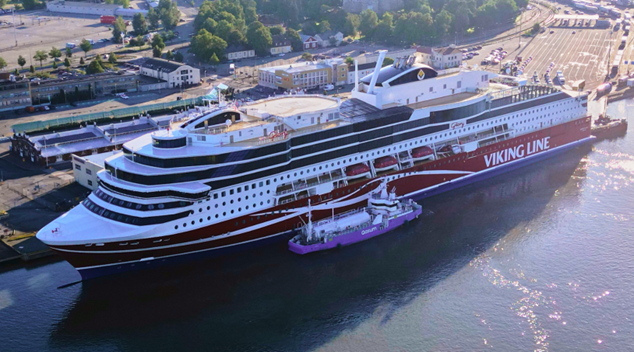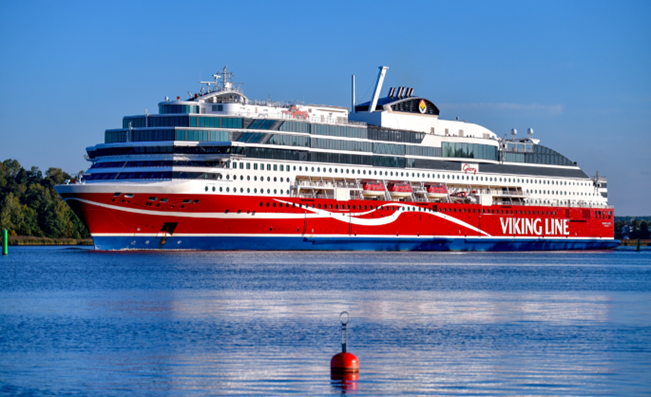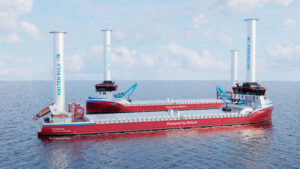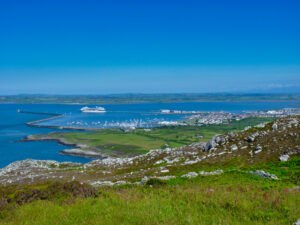
Viking Line’s environmental work, which began in the 1980s, continues on the Baltic Sea’s first green corridor, with two of its vessels using for one week only liquefied biogas (LBG) as a fuel. Now Viking Line expects that the vessels serving the Turku route will reduce their emissions by 90 per cent when the company runs those vessels for the first time for a whole week solely on biogas.
Finland-based Viking Line will celebrate Baltic Sea Day by introducing the first green corridor ever on the Baltic Sea, between Turku and Stockholm, for one week.
Its vessels Viking Glory and Viking Grace will only use liquefied biogas (LBG) as a fuel from August 29 to September 4, which will reduce the vessels’ carbon dioxide emissions, as Viking says, by 90 per cent compared to liquefied natural gas (LNG).
During the week, a total of about 2,600 fewer tonnes of greenhouse gas emissions will be generated than normally.
The reduction corresponds to the annual average carbon dioxide footprint for 270 Finns.
“Scheduled service has never before been powered solely by biofuel. We have invested 450 million euros in our climate-smart vessels Viking Grace and Viking Glory, and one of their most important features is that they can run on LNG, biofuel and future synthetic fuels produced from renewable energy,” said Viking Line’s sustainability manager, Dani Lindberg.
For one year now, the company has offered its passengers and its conference and cargo customers the option of purchasing biofuel corresponding to the amount of fuel used for their travel.
According to Viking Line, this reduces emissions by 90 per cent per passenger or cargo unit.
“The number of trips using biofuel increased 500 per cent immediately when we highlighted the option earlier in our booking system.”
Viking Line, which is involved in efforts to develop a green sea corridor between Turku and Stockholm and between Helsinki and Tallinn, explains that its biogas is supplied by Gasum, which makes the fuel from food and agricultural waste.
“We have already operated Viking Grace using biogas on our Turku route, and passengers and cargo customers on Viking Glory and Viking Grace also already have the option to purchase biogas when they book their trip to offset the fuel used for their own travel and thus reduce the emissions for their trip by up to 90 per cent.
“Now, for the first time, we are operating for a whole week using only biogas, which is unique.
“There is still limited access to renewable fuels, and the price for such fuels is at least twice as high compared to LNG. It is important to create demand in order for supply to rise and the price to fall,” added Dani Lindberg.



